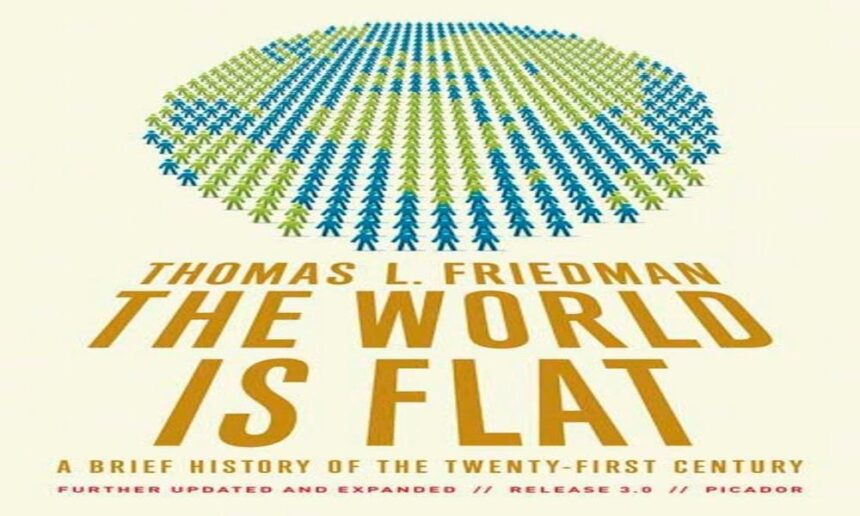Thomas Friedman, a world renowned author, famously declared, “The world is flat.” In his book, he argued that any underdeveloped country could attain rapid economic development by taking advantage of the age of globalization, if easier movement of capital and labor between countries is allowed, and investment funds seeking new business opportunities are able to transfer substantial amounts of money from country to country in no time.
Every country can achieve such rapid development if they manage to achieve stable government, uphold the rule of law, and create an investor-friendly climate that is easy to understand. Although the Mongolian government used to invite investors to the country with a warm welcome, they had a sudden change of heart and started to pick on investors by building numerous “barriers and obstacles,” which ultimately pushed them out.
Nevertheless, the government has looked back on its actions and is now trying to create the most stable investment environment possible. However, more time is required for the foreign investment that has already left to return. Also, despite a good investment environment, some investors turn the other way and decide to spend their money somewhere else. After all, it appears that the world is not that flat yet, if you look at the examples of many countries, especially Mongolia.
Achieving sustainable economic development in the long term requires foreign investment. In order to attract foreign investment, many intangible factors are needed besides an investment-friendly legal environment. When those factors are combined into one element, we have what we call culture.
Culture is characteristics shared by a particular group of people, and it can be defined by their language, religion, tradition, social behavior, music, and arts. Culture expresses the beliefs and values of the people. Even though some people might not be aware of it, our whole life – our thoughts, actions, and feelings are driven and governed by culture. Culture is not something that belongs to an individual, but it is a creation that is collectively owned. Culture is an inseparable part of social life, as it allows people to understand one another and connect with each other.
Impacts of culture on the economy
In his book written in 1776, economist Adam Smith argued that millions of people who are pursuing their own interests make their contributions to the formation of a society that is capable of sustainable development without the need for any involvement by the central government. He called the force that regulated all of this “Invisible Hand”. We have bread to eat only because the baker made the bread not out of the goodness of his heart, but out of his desire to improve his well-being. Any individual action that is intended to serve self-interest usually ends up serving the common good as well. It means that culture affects the economy.
Lebanese entrepreneurs own a huge amount of capital in West Africa, and the richest person in the world is Carlos Slim, who is Lebanese. Most of the wealthiest people in South America are from Europe, and six of the seven oligarchs that emerged from Russian privatization were Jewish. Moreover, most of the Croats living in the former Yugoslavian region are living more prosperously than the Serbs. In conclusion, it is hard to deny that cultural differences produce differences in income.
Scholar Gregory Clark wrote that the industrial revolution would not have taken place in any other country but Great Britain. By the beginning of the 18th century, England had stable political institutions, a reliable legal system, and a functioning market where property values were predictable. However, they did not have all of the necessary conditions for a surge in economic development.
As English society and culture gradually transformed, the missing ingredient, according to Clark, was the change in human behavior that prompted individuals to acquire competitiveness and work ethics to labor for what they deserved. By that time, English society experienced a significant reduction in crime and violence. The middle class prioritized hard work above all else, and strived towards getting better results. As a result, the entire population became more literate as well as hard-working. All these factors led England to the successful industrial revolution.
Cultural values
In regards to the role culture plays in economic development, Guido Tabellini, an Italian scholar, stressed the importance of four specific cultural values in economic development and argued that there were higher GDP per capita in countries that exhibited higher levels of these four values. Those values were mutual trust, individual effort, generalized morality, and autonomous decision making.
Mongolian cultural values: Where are we?
Mutual trust: In a Mongolian society, people still have more trust in their family and relatives than they do in people outside of that circle. When family businesses expand, family members, rather than professional teams, are entrusted with management of the business. Our society, as a whole, does not recognize the difference between owning a company and managing a company. Lack of social trust is another reason why the capital market is not being developed in Mongolia.
Individual effort: Mongolian society is not readily accepting of those who have achieved distinguishable success and earned great wealth. As a result of the past experiences of working for the common good, people are slowly learning to appreciate, acknowledge, and respect the successes of others. Moreover, people are more likely to duplicate successful businesses that are already in place rather than come up with a brand new idea for doing business. Individual success is blocked by weak public governance in Mongolia today.
Generalized morality: Morality within a family is yet to be disseminated to every member of the society. Mongolians still have the strong attitude that nothing has to be cared about unless we are directly affected by it. People still view it as an ordinary act when others spit while walking in the streets and throw rubbish out of their car windows. We still have an attitude that does not give respect to strangers.
Autonomous decision making: Due to the nomadic culture that requires Mongolians to make prompt decisions in the event of extreme weather conditions, we have relatively higher independent decision making skills.
Many scholars such as, Amy Chua, Luigi Guiso, Robert Putnam, and David Landes add work ethics to the above mentioned four cultural values. When faced with an urgent task, nomads focus on competing the work as soon as possible. Instead of working hard consistently for gradual improvement in the future, like people from sedentary cultures, nomads want to see immediate results. The difference can be observed from looking at how Mongolian and Korean people work. Mongolians have weaker work ethics and discipline.
We can improve our labor productivity and acquire competitiveness by making certain changes in our cultural values, as mentioned above. If we manage to achieve this objective, Mongolians will enjoy more rapid economic development and improved livelihoods. However, a considerable amount of time is needed to make the necessary changes, as it depends on the efforts of every individual.
The time has come for us to put our best efforts towards making our beloved country “flat.”
2013.11.06












